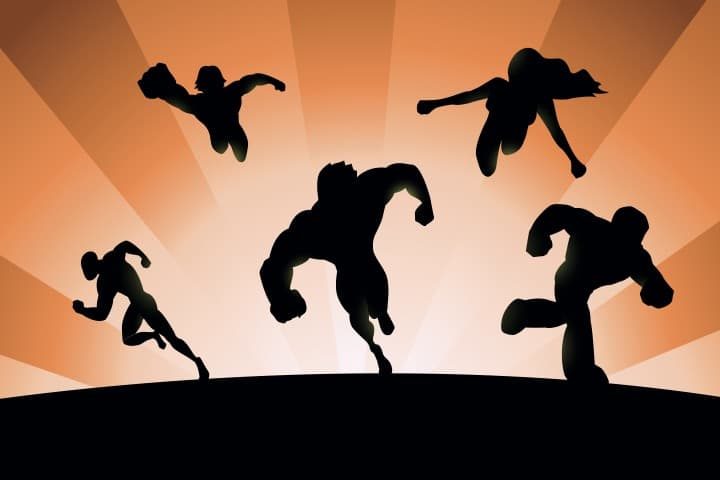
Religious faith is a natural aspect of human nature. If denied to the soul, the individual seeks to fill that void by whatever means are available.
One of the most notable pop culture phenomena of recent years has been the superhero craze. Comic books have, of course, been around for a long time. The famous Golden Age of Comics was all the way from 1938 to 1954. If you were a kid growing up during that era, chances are you did some comic-book reading as a form of entertainment.
And there’s nothing inherently wrong with that. Tales of superheroes can be innocent and even push moral lessons. Superman, for instance, was originally a role model for “truth, justice, and the American Way.”
Moreover, there have always been various fads of thematic cycles going in and out of popularity. The Western, for example, once reigned supreme on both the big and small screen. During the years 1930-1954, approximately 2,700 Western films were produced.
But in the late 1970s and early ‘80s, the genre gradually died. Nowadays, Hollywood churns out a Western only every now and then. These films might even score some big celebrity names, such as 3:10 to Yuma with Russell Crowe and Christian Bale. But there isn’t enough demand around Westerns to create cowboy icons such as John Wayne and Clint Eastwood .
There are sociological reasons why certain genres captivate the public for a time. The love of the Western represented Americans’ longing for the adventurous days of exploration and conquest that ended with the closing of the frontier, a pining for “simpler” days amid the complex realities of the 20th century.
The Biblical epic, which really took off in the 1950s with films such as The Ten Commandments and Ben-Hur, coincided with Americans’ reawakened Christianity, spurred by the horror of World War II and the threat of communism.
Organized-crime films and series, which are especially popular in Latin America but also have a steady following in the United States, have found a wide audience in this era of cynicism, disillusionment with government, and disbelief in the American (or Mexican) Dream. Viewers may disagree with the most wicked acts of drug lords, but they simultaneously admire the ability of these men to amass great wealth while coming from humble circumstances and going against the feds — it all has the spirit of a twisted version of Robin Hood.
Likewise, there is a sociological explanation for the explosion of superhero content in the film industry today. As many have observed, the superhero story has elements of the mythical figures from folklore — characters with great powers who go about doing good and thwarting evil. It’s a spin on the tales of Hercules and Samson and Thor (they have even turned Thor into a popular comic book character).
Again, there is nothing wrong with some entertaining fiction. The problem is twofold.
The first issue lies with the manner in which the genre has gone from a way of innocently passing the time to an obsession that occupies the minds of fans with all the fervor and eagerness of a religion. Fandom has become a form of modern religious worship for far too many young people today. Many superhero fans know nothing about the Bible, but can tell you every minuscule detail and storyline about their favorite series.
The other issue is the way in which modern comics and comic-based multimedia have transformed into something that no longer instills good values in the youth who consume it. As noted above, old comics once were very staunch in their promotion of Christian, American values. These stories were not seen as a replacement to the nation’s moral fabric, but an entertaining supplement to it.
Now, comics and the films they inspire are devoid of anything Christian and traditionalist. It appears the makers of this content are in a competition to see who can insert the most Marxism into their stories, turning this character gay or that character trans or making this character have an abortion or crafting a storyline over there that reinforces the “conservatives are the real bad guys threatening the world” narrative.
In other words, the superhero “mythos” has supplanted the role that history, biblical scripture, and traditional national myths were supposed to play in society. And the Entertainment Industry accomplished this so sneakily because, as said earlier, superheroes were once seen as paragons of virtue, as role models of heroism and of good combating evil.
But, as is so often the Left’s tactic, once they had the trust of the kids and the parents, they shifted gears and changed the “religion” being peddled by this modern mythology into cultural Marxism.
It’s time to put an end to this deceptive cult. Today’s youth are yearning for a rich heritage of stories, lore, and wisdom to draw from. Let’s point them to the best resource for that — the Word of God and our people’s history.




